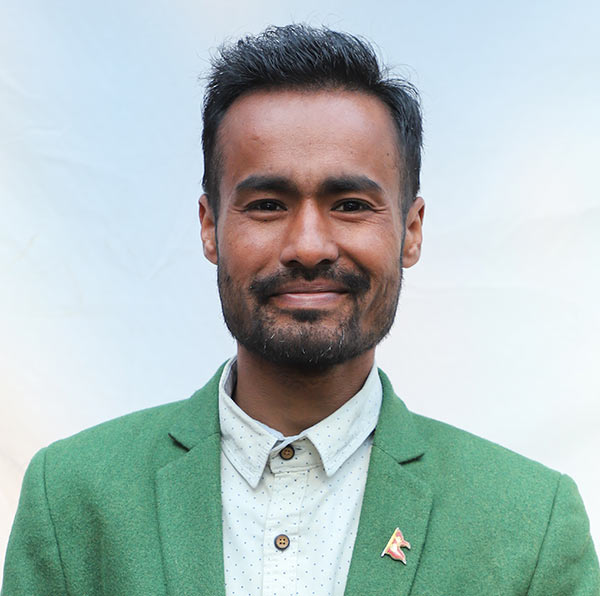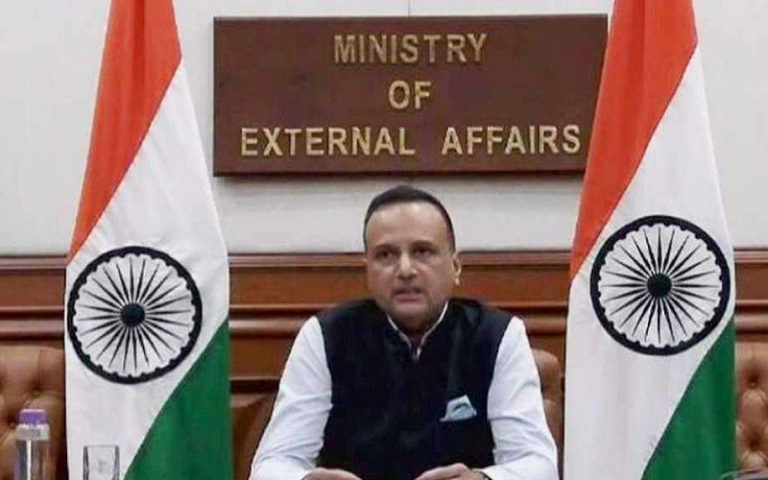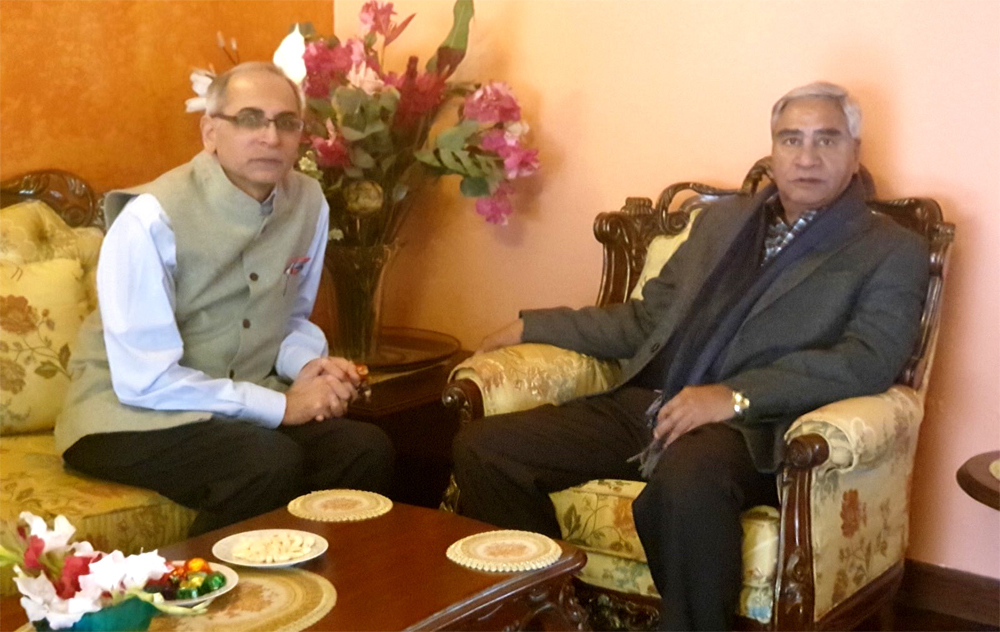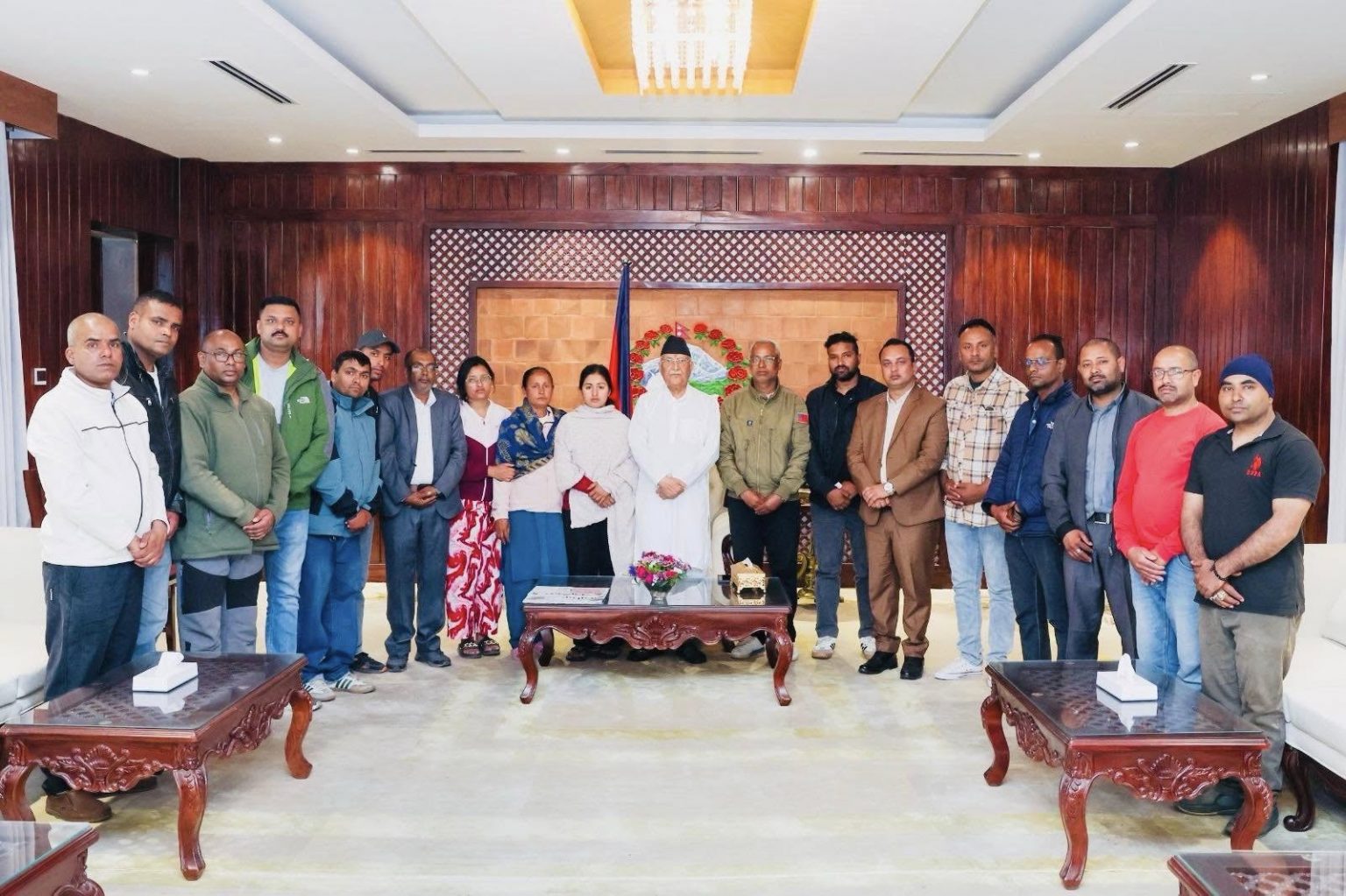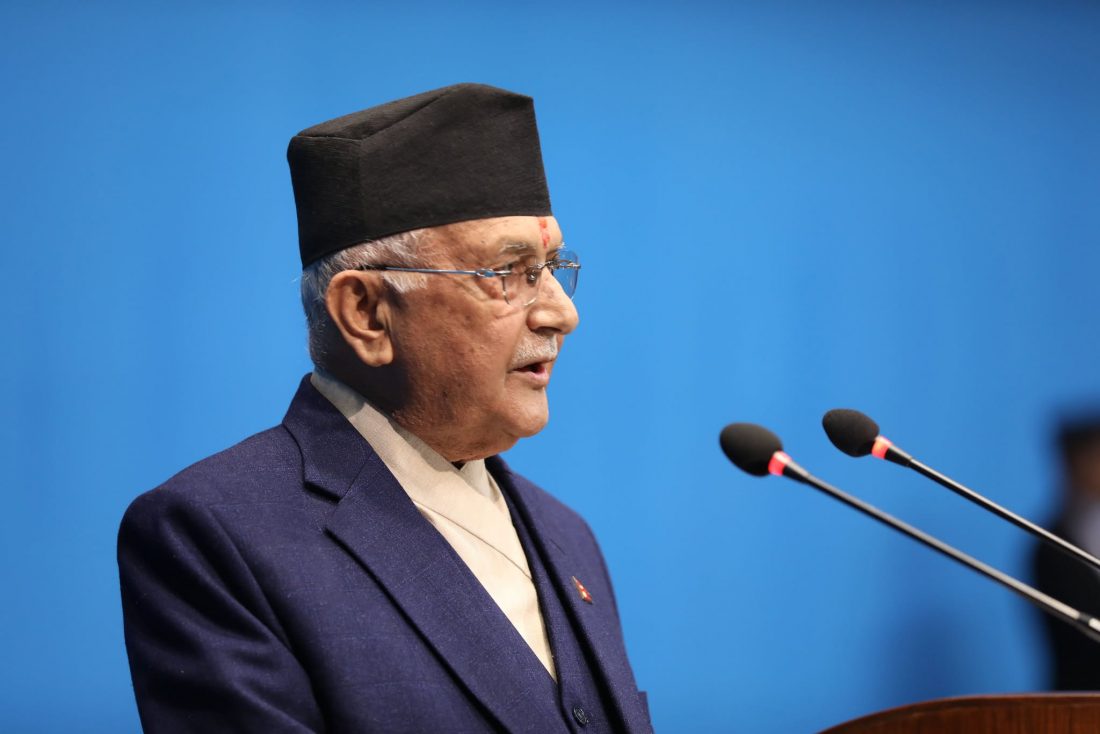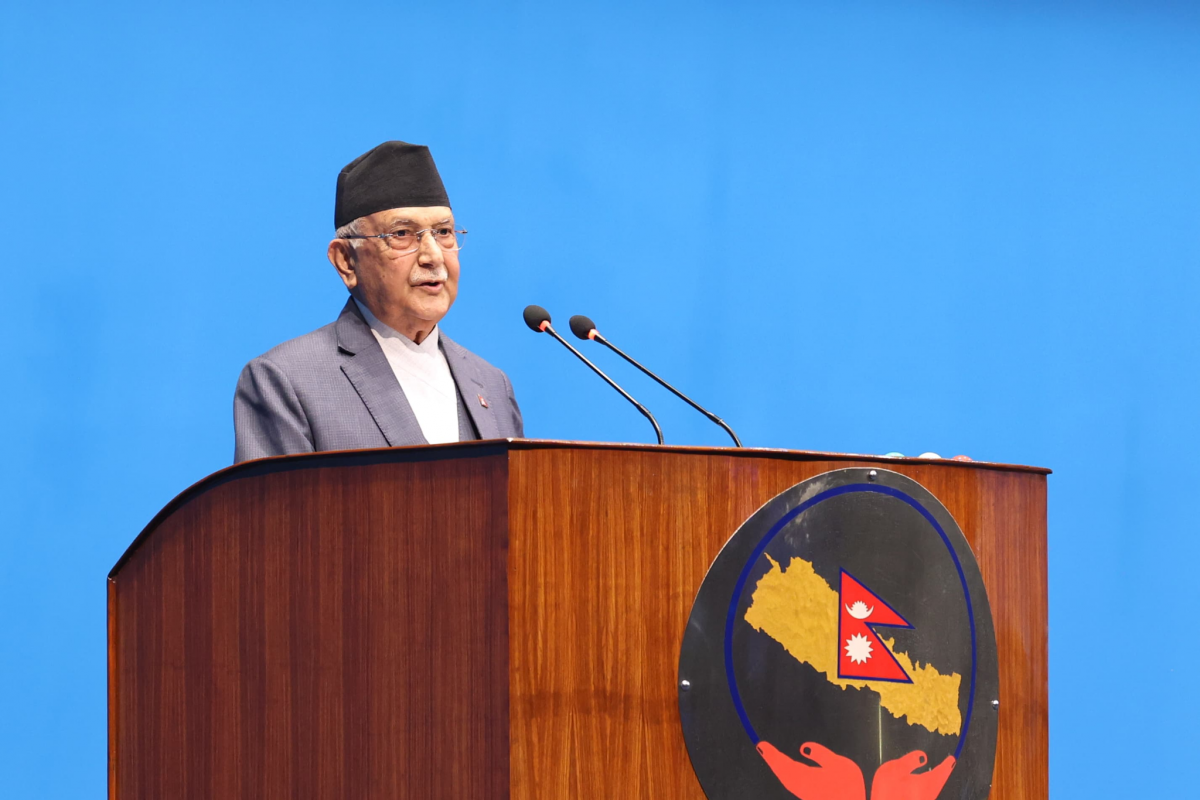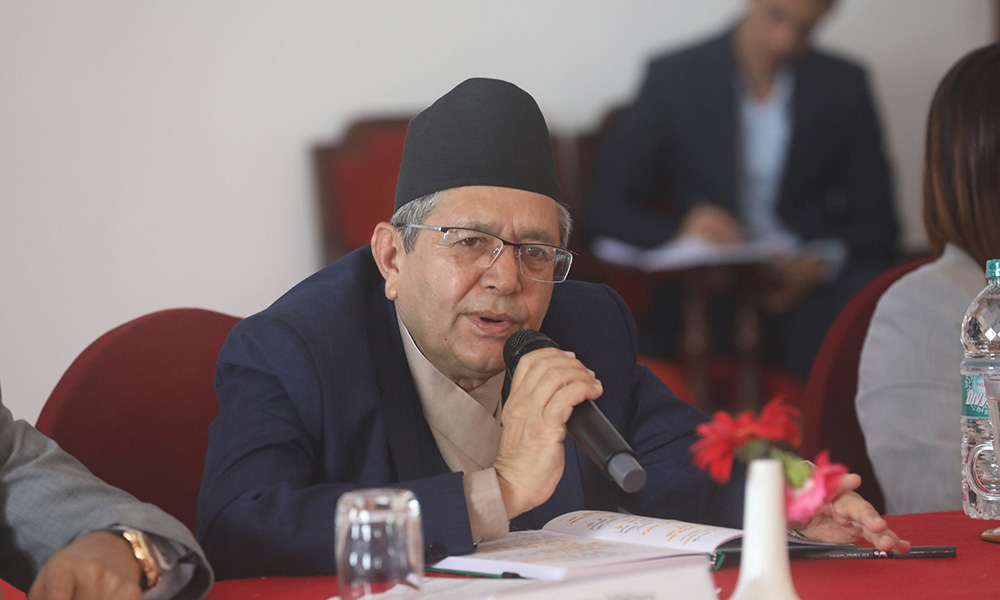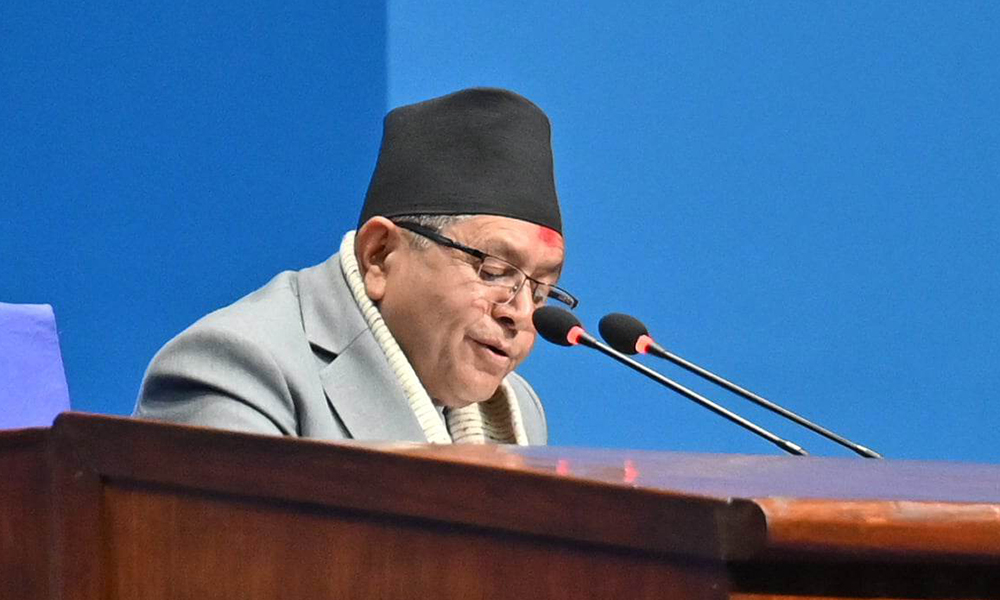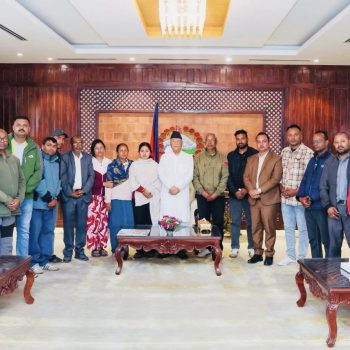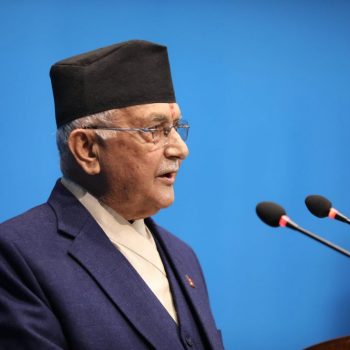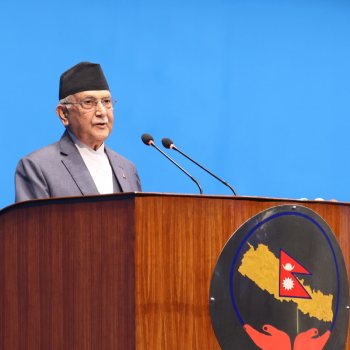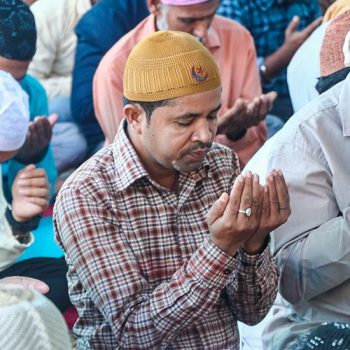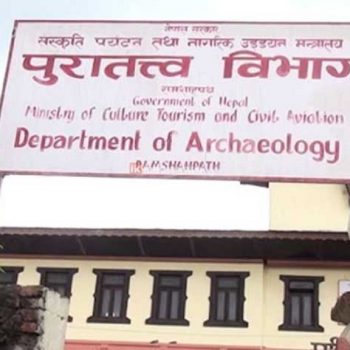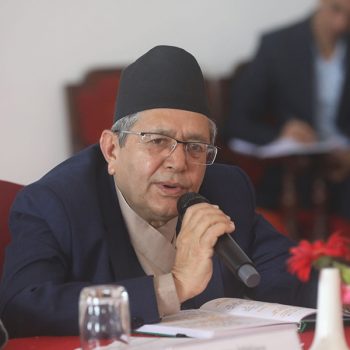India neutral or making moves on political ups and downs of Nepal?
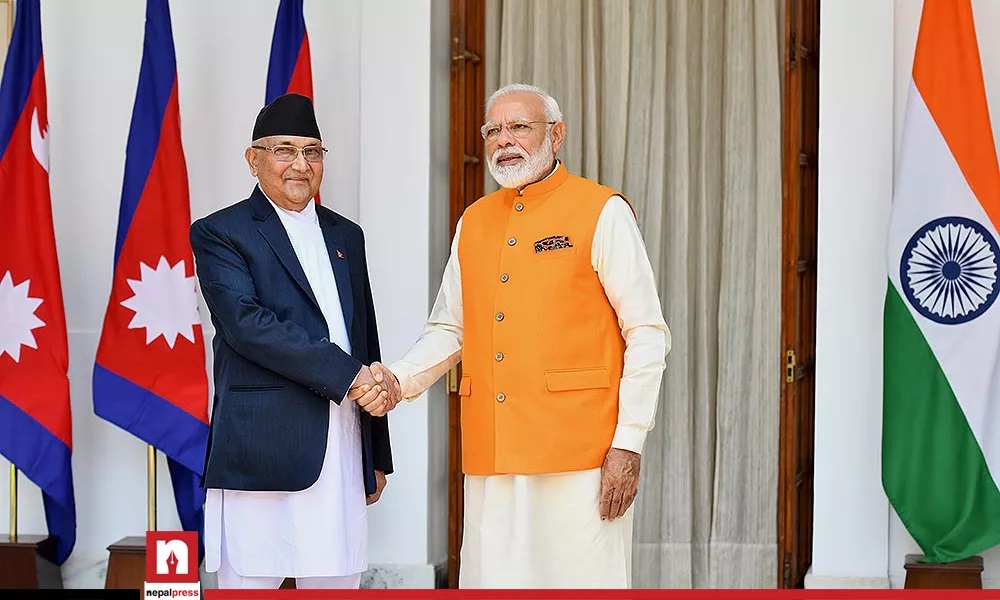
KATHMANDU: After Prime Minister KP Sharma Oli recommended the sudden dissolution of parliament, the opposition strongly accused him of taking the step at the behest of India. At the same time, the head of India’s intelligence agency RAW linked the meeting with Oli to the prime minister’s move.
Neither the Indian government nor the establishment has formally responded to Nepal’s internal affairs. The Indian ‘game’ that was openly seen during the important political developments in Nepal has not yet surfaced. However, it would be foolish to conclude that India is really ‘ignoring’ Nepal’s case this time around. There is a saying in diplomacy – not sending a message is also a message.
At a regular press briefing at the Indian Ministry of External Affairs on Thursday, spokesperson Anurag Srivastava termed the political developments following the Supreme Court ruling as an “internal matter” of Nepal.
On Thursday, the Indian Ambassador to Nepal Vinay Mohan Kwatra had a meeting with the president of the Main Opposition Party Sher Bahadur Deuba. Indian ambassador meeting Deuba, who is also seen as a candidate for future Prime minister indicates that the Indian embassy is now on its way. The details of the meeting have not come out yet. But, according to sources, Quatra was interested in a possible power equation. Perhaps in the coming days, he may now extend the order of meetings, either secretly or openly.
Looking at the comments of India’s ‘low profile’ leaders and the media coverage there, they are excited about the fall of the Oli government. After the Supreme Court’s decision, the same kind of ‘narrative’ is often found in the Indian media. Indian media, including the Times of India, The Hindu, Indian Express and Republic, have described the court’s decision to reinstate parliament as a “big setback” for Prime Minister Oli. Recalling that Oli dissolved the parliament after a dispute within his own party escalated over the national issue, Indian media reported that the court’s decision was a “push” for Oli.
An article in the Hindustan Times on February 24 titled “Where Nepali and Indian Interests Meet” states that the Supreme Court’s decision has opened the door for Oli. In the same article, it is suggested that India should change its approach to Nepal. It is mentioned in the article that after the Supreme Court’s decision, the ruling Communist Party of Nepal has turned towards division and this is also the central interest of India.
“India should take the restoration of parliament as the beginning of its aspirations. Now Oli shall not make any more unpleasant decisions that will affect democracy. Nepali democracy and Indian strategic aspirations meet here. Both of them should work hard for this,” wrote Hindustan Times.
The Indian newspaper Economic Times wrote in its February 24 edition: “Despite the dissolution of parliament, we have received information that India, which recently welcomed Nepal’s Foreign Minister, is closely monitoring Nepal’s development.”
Brahma Chelani, a professor of strategy studies and author at the Think Tank Center for Policy Research in New Delhi, said the Supreme Court ruling sent a message that democracy is alive in Nepal.
He tweeted, ‘When Nepal became a communist-ruled country in 2018, a question arose – can democracy and communism move forward together? But the Court’s ruling sends the message that democracy is alive. “
He is the same Chelani who in an article published in Project Syndicate on May 25, 2018, mentioned that Nepal is a ‘test case’ to find out whether democracy survives under communist rule or not. He was referring to a secret Chinese Communist Party circular leaked in 2013. Document No. 9 of the circular stated that democracy is a big challenge for China.
Silent diplomacy of the South Block
Not only after the court decision, but the South Block has not been open about developed Nepali politics since the dissolution of the parliament. At a regular press conference at the Indian Ministry of External Affairs in New Delhi on December 24, spokesperson Anurag Srivastava said that India was only watching Nepal’s political development closely. He said it was an “internal matter” of Nepal.
‘As a close neighbour and a benefactor, India has always stood for peace, prosperity and development in Nepal. Indian assistance to Nepal will be regular, ”Srivastava said. A spokesman for the Indian Ministry of External Affairs said two months ago that the statement was India’s final formal response.
As it is an internal matter of Nepal, it is natural that India does not want to open its mouth formally. However, the characteristic feature of India is that when Nepal’s politics is unstable, it does not spare any effort to play within it. India has been accused of always taking a side in the conflict and pursuing its own interests. It is difficult to believe that India, which has resorted to ‘micro-management’ in Nepali politics, is completely neutral or roleless even in the current political scenario.
Even if Indian political figures do not open their mouths, the mood of the Indian establishment can be inferred from a number of remarks made by low-profile leaders. For example, the ruling Bharatiya Janata Party (BJP) leader and Rajya Sabha member Subramaniam Swamy have reacted strongly. He says India’s relationship with the new government to be formed after the Supreme Court’s decision will move forward from a new vein.
Subramaniam’s comment is very personal. But, even as he is the leader of the ruling party, it makes sense. This is also a reason to assume that the Indian ruling party is excited about Oli’s exit. Even with Oli, India’s relations have not been smooth. In his first term as Prime Minister, Oli spoke out against the Indian blockade. During his second term, he published a new map of Nepal, including the Nepali territories occupied by India. It is understood by diplomats that India is irritated with Oli and wants him to leave as soon as possible. This literally means that India can support the Prachanda-Madhav faction in the upcoming coup.
In an interview a few days ago, Prachanda openly called on India to support his agenda. He thanked India for the vaccination and urged India to speak out to save the constitution. India did not respond to that.
Experts say: Foreigners do not need to speak
Former Ambassador to India and Politician Lokraj Baral sees two reasons for India’s silence in the political scenario behind December 20. First, the dissolution and decision of the parliament is a very internal matter of Nepal. Second, since the ruling Communist Party of Nepal is not legally divided, speaking out now is a diplomatic immaturity. ‘
He said that the remarks made by politicians including Suvramaniyan Swamy did not reflect the views of the Indian establishment.
Foreign expert Dinesh Bhattarai says the diplomatic community will remain silent and there will be no change in their position until a new government is formed.
“The current political instability has been taken by the foreign community as an internal matter of Nepal,” he said, “because the international community does not want to comment on it.” They have taken it as the worst domestic dispute in Nepal. They are in a state of waiting and watching and are not in the mood to comment immediately. ‘Bhattarai said that the foreign community has not yet come to trust the Nepali communists.


